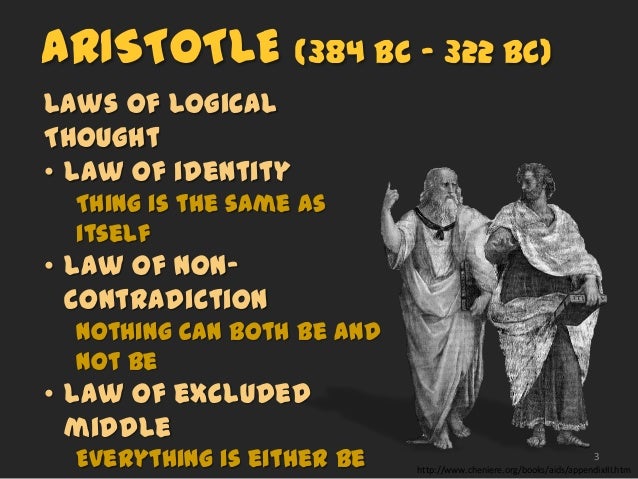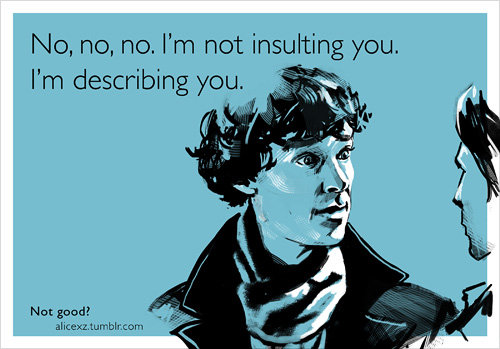In the course of the debate involving Matt Slick and Aron Ra, it was clear that both sides were guilty of not abiding by various, generic protocols that need to happen in order for a debate to be ideal, and in order for the productivity of a dialogue to be at its maximal ideal.
At a minimum, emotion should be minimized, civility needs to be maximized, terms need to be clarified, premises need to be proven (or argued for), and arguments need to be valid. If all of that is a success, you have a sound argument. That's the purpose of argument, as far as I can tell.
1. The Biblical God and the analogy of fictional characters
At the beginning of the debate, Ra attempted to draw an analogy between how we know obvious cases of fictional characters do not exist (he added 'cannot', but I don't see reason to think they 'cannot' in the narrowly logical sense), and how Ra can know that the Biblical God (BG) does not (cannot) exist. Slick could have skipped ahead to the meat. He could have said he doesn't believe BG is fiction, here are reasons X, Y, and Z for why I believe God exists. But Slick objects to associating BG with cartoons, even though it's obvious Ra is just trying to draw an analogy between being able to know fictional characters do not exist, and knowing BG does not exist. The next step ought to have been: here are some reasons to think that BG is non-fiction. But we're sidetracked by peripheral questions about Slick not knowing enough biology to say that Godzilla could not exist, and other banal topics that avoid the meat.
2. Science and Faith
This is where clarification of terms is so important. It became obvious throughout the course of this debate that Ra and Slick we're using the word 'faith' in two difference senses. Slick meant 'faith' to mean a non-certain, but probably true belief based on various forms of reasoning or evidence (a lot of these nuances are helpfully sorted out here). This is evident when he accused Ra of having faith in the uniformity of nature or in the validity of induction. Ra meant 'faith' to mean belief without evidence (something closer to here). He's famous for using that quip over and over again that faith is belief without any reason, and against all reason, that it's the most dishonest position one can have, that Christians conflate trust in a person, place, or thing (the dictionary definition) with scientific beliefs (based on evidence, scientific method, so on).
It's really clear that already Slick and Ra are talking passed one another. Let's outline their definitions.
Slick's faith (SF) - Faith is non-certain, probably true belief based on evidence or reasoning of some sort.
Ra faith (RF) - Faith is belief without reason, and against all reason.
So, when Ra says scientists don't use faith, Ra means RF. But when Slick hears Ra say this, Slick is working with SF, not RF. Then, the talking passed each other pretty much dominates the rest of the debate. So, by illustration, Ra says with faith (RF), you can make up anything you want. But Slick doesn't have RF; he has SF. So, the illustration is inapplicable. It's clear that Ra is essentially a scientist, and so he'll construe knowledge in terms of scientific confirmation. One of his maxims is: if you can't show it, you don't know it. Or, Ra typically says it's the most dishonest position one take (at least, w/ belief formation).
I disagree with this epistemology, but all Slick has
to do is simply interact with the epistemology. That would have been where the dialogue could have been productive. After all, 'naturalized' epistemology is debated among philosophers of science generally, and epistemologists specifically. Quine could have been brought up, or Putnam, or any number of other philosophers. The Clifford/James debate could have been brought up.
C.S. Lewis' essay The Obstancy of Belief could have been brought up (a good analysis is here), an essay that's helped me tremendously in understanding how scientific hypothesis and religious belief are different in various respects. Or, William Lane Craig's distinction between knowing/showing Christianity to be true (critiques are here and here). I'm not saying these people have knock-down, drag-out arguments, but it's at least a starting point.
At this point, it started going downhill. There was
annoyance at being cut-off (9:53), especially. But what's more subtle is that getting cut-off was a result of a rhetorical tactic (Slick scoffing: 8:10, 11:46, 12:30, 13:51, 14:50, 14:58, 15:38, 15:51, 17:05, 17:32, 18:46, 25:10, 25:20, 25:59, 26:14, and on and on). If the tactic wasn't used, the cutting-off would have been less probable. That's just a fact about debate dynamics. So, Slick wanted Ra to admit that scientific confirmation doesn't lead to certainty. This is expected by SF presupposing you don't have certainty, while FR presupposes that certainty isn't necessary for knowledge, which I agree with.
Slick ended up resorting to calling Ra the most idiotic person he's ever dealt with, etc. Such comments are not Christ-like, and he was wrong to make them. Further, Slick's whole demeanor (twitchy shuffling, raising the voice, sarcasm, wide eyes, insults, childish heckling, immature shallowness, and pretentious fallacy spotting) were very off-putting and not becoming of what it means to be a Christian apologist. It makes me sad that this kind of man runs one of the most popular Christian apologetics websites and is the face of apologetics for much of the non-Christian world. I realize unfair criticism can get leveled at someone irresponsibly. I don't fully agree with accusations about Dr. Craig's dishonesty, to name an example. But in Slick's case, I think the character flaws are on stage for all to see.
Ra isn't innocent either. His main weakness is
Gish Galloping an opponent to death. Though I didn't agree when Slick noticed it when he did, he called it 'verbal carpet bombing'. Ra also has a tendency (probably due to repeatedly experiencing substandard debate tactics in the past) to evaluate the motives of an opponent before first hearing out the argument. He might be on the right path, but it's tactically better to keep it under wraps until after the argument is out in the open for evaluation; otherwise, the opponent has the opportunity to focus on that (rather than the argument), and then we're down along another interminable rabbit-hole.
3. Faith and the Laws of Logic
Now, Slick switches from Science to the Laws of Logic. Slick asks Ra: do you have a faith that the laws of logic work/are true? This question is usually zipped out so fast without defining anything that it has the air of plausibility about it, but it's never good to just throw it out there. You should go about it more like this. There seem to be such things as laws of logic. The ontology of these laws is conceptual. If they're conceptual, they're mind-dependent. If they're mind-dependent, then they existed when there wasn't any human minds. Thus, if they're mind-dependent, what gave them reality? God. Now, it's a far cry from the Christian God, and I don't say that this formulation of the argument is a good one. But it's all about approach, and meeting the person where they're at. For example, Ra intimated that he could prove the laws of logic scientifically, and that will involve construing the laws as mind-dependent in some sense, making them social constructions or something like that. This is fine. Now, you go into reasons pro/con for why they are or aren't dependent on minds, or why they are/aren't social constructions. Procedurally, these seems self-evident. But emotions won the day, unfortunately.
4. Defining Faith and Valid Authorities
Slick faults Ra for telling Slick (who claims to be
an authority on what faith means) what faith means. Since Slick has the relevant credentials, he doesn't seem guilty of the Argument from Authority. But it would have have been better to just do a word study of the Greek word for 'faith': pistis. If meaning is determined by authorial intent, then we can work with what the New Testament authors would have meant by that. Once established we can ignore how Ra has interacted with dictionary definitions, lay person opinions, Mark Twain, etc. Slick and Ra could agree on the concept and disagree on the word used to denote the concept. Slick shouldn't just say my view of faith is right because I'm an authority. It may give his understanding weight, but it's much more tactical to just define it in terms of etymological studies.
5. Conclusion
It's hard to get into more detail than this. The discussion devolved into an overly aggressive repetition of miscommunication, ignored questions, bad moderation, insults, and obfuscation. I will end a note on the moderator: Bible Thumping Wingnut (BTW). BTW should have jumped in and bridled the discussion multiple times. His method may be to stay out of it to allow free exchange. But there's a time and a place. The discussion was obviously going absolutely nowhere. It could have had more hope had he stepped in and chided Slick. It would have had the added benefit of displaying objectivity. When you have Slick obviously not displaying Christ-like behavior, and the only time BTW said anything was to jump on the Ra-beating bandwagon, that (to me) shows a lack of moderation skills. BTW needs to encourage substantive debate and quell distracting dialogue-stifling incivilities.














No comments:
Post a Comment